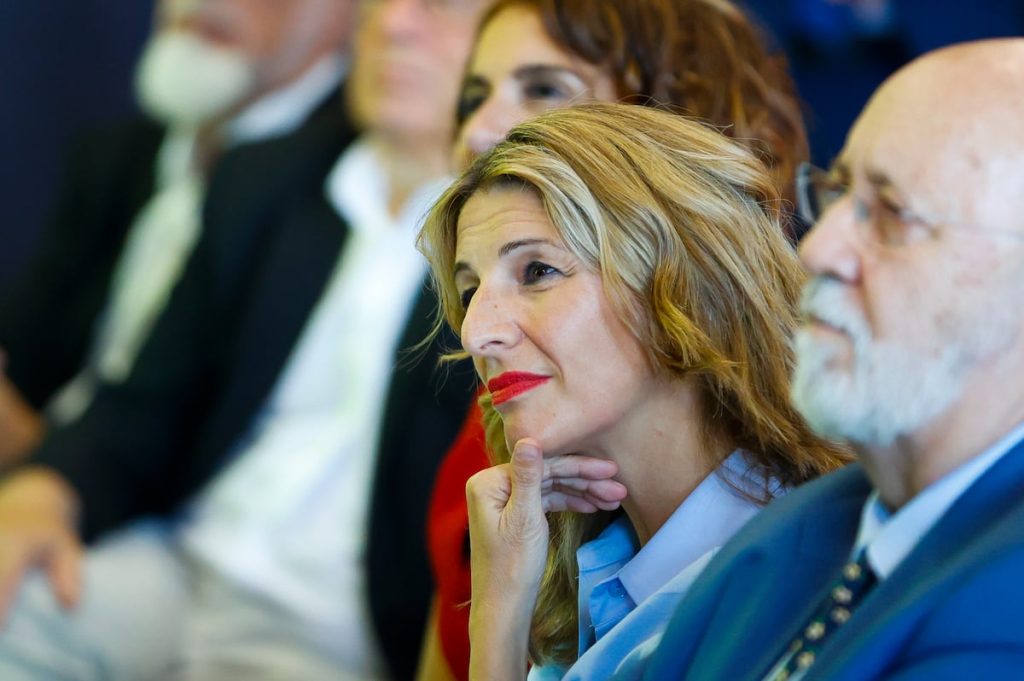The criticisms of the work of the Center for Sociological Research (CIS), the public institution that conducts surveys, are not only coming from the political opposition and numerous experts who reproach the fall in the credibility of its polls since it has been presided over by socialist José Félix Tezanos. The questioning has also reached the heart of the Government. Even some socialists privately criticize the CIS surveys, which systematically overvalue the progressive block in voting intention. However, it was Sumar, through the Second Vice Presidency of the Government, led by Yolanda Díaz, who openly and officially expressed these concerns. The department headed by Díaz demanded profound changes to regain credibility that it sees as weakened in recent years, since Tezanos took over the organization.
Two weeks ago, in the observations recorded in the commission of undersecretaries and state secretaries, Sumar expressed its critical views and called for significant changes in the CIS’s strategy, planning, and methods to regain credibility before giving them the extra four million euros requested. This funding was intended to cover an unexpected increase in surveys due to the succession of elections – Galician, Basque, and Catalan, all advanced, as well as European. Sumar took this opportunity to make critical observations in order to improve the organization’s operations and reputation.
Despite Sumar’s recommendations, the socialist sector of the Government proceeded with the approval of the additional four million euros for the CIS on May 14, without addressing the concerns raised. The issues were not debated in the commission of undersecretaries, but the observations remained in official government channels. This demonstrates that the discontent with the current management of the CIS is not only a matter of hallway comments but also a topic that is being officially discussed within the Government. The latest public opinion poll by the CIS predicted that the PSOE would have a five-point lead over the PP in the European elections, a result that even the most enthusiastic socialists find unlikely.
Despite the criticisms, Pedro Sánchez maintains his trust in Tezanos, whose position was automatically renewed when the new Government was formed last year. The Government spokesperson, Pilar Alegría, defended Tezanos’ continued role because she believes he is “the sociologist who gets the surveys right,” even though experts consistently highlight that his polls tend to overestimate left-wing results. Tezanos, a Sociology professor and PSOE member, has been leading the CIS since 2018, having resigned from his position in the party’s Executive Committee due to opposition pressure.
Sumar’s observations emphasize the historical prestige of the CIS as a public institution but point out that this has been significantly damaged over the past five years due to specific decisions. They highlight issues such as partisan bias, questionable methodological decisions, and a lack of strategic direction. The observations specifically criticize a recent flash survey conducted by the CIS to gauge public opinion on the President’s open letter regarding his resignation announcement, describing it as short-term, partisan, and demographically questionable. Sumar proposed significant changes in the CIS’s approach, calling for a focus on quality and academic orientation in their surveys rather than feeding the media with politically relevant but often unimportant information.
Despite Sumar’s recommendations for changes in the CIS’s operations, the additional funding was granted without addressing their concerns. The discreet manner in which the four million euros were approved may have hidden the underlying discontent within the Government with the CIS. The observations from Sumar shed light on the ongoing debate about the credibility and methodology of the CIS, not only within the opposition and some members of the parliamentary majority but also within the Government itself.


